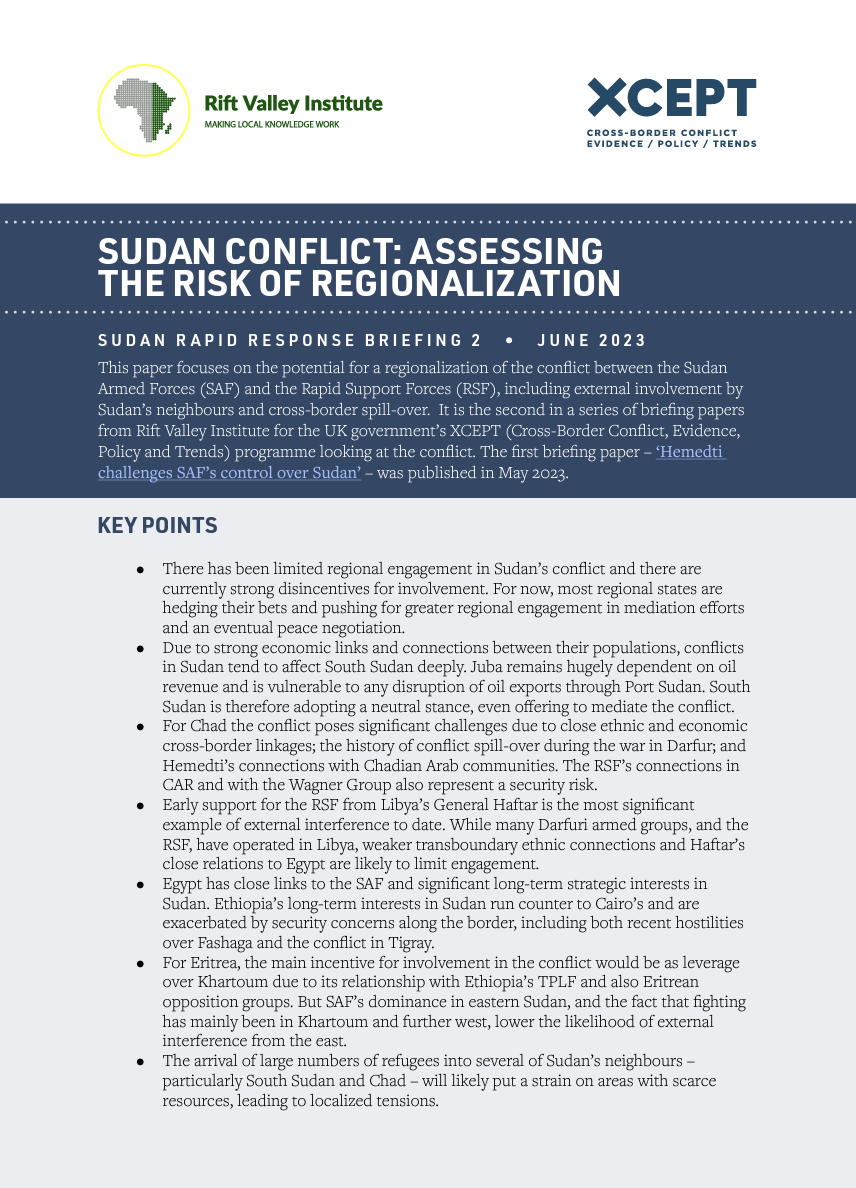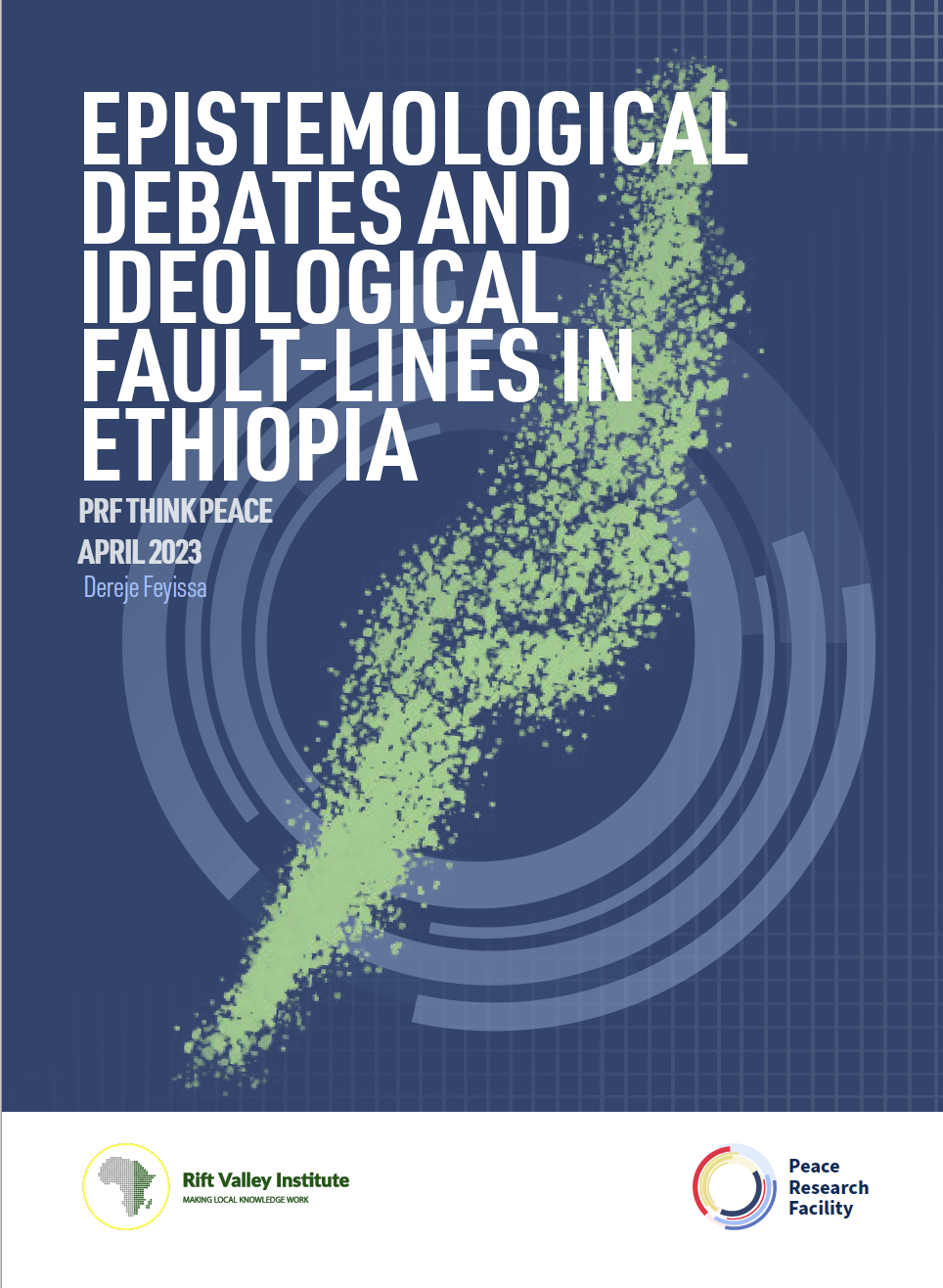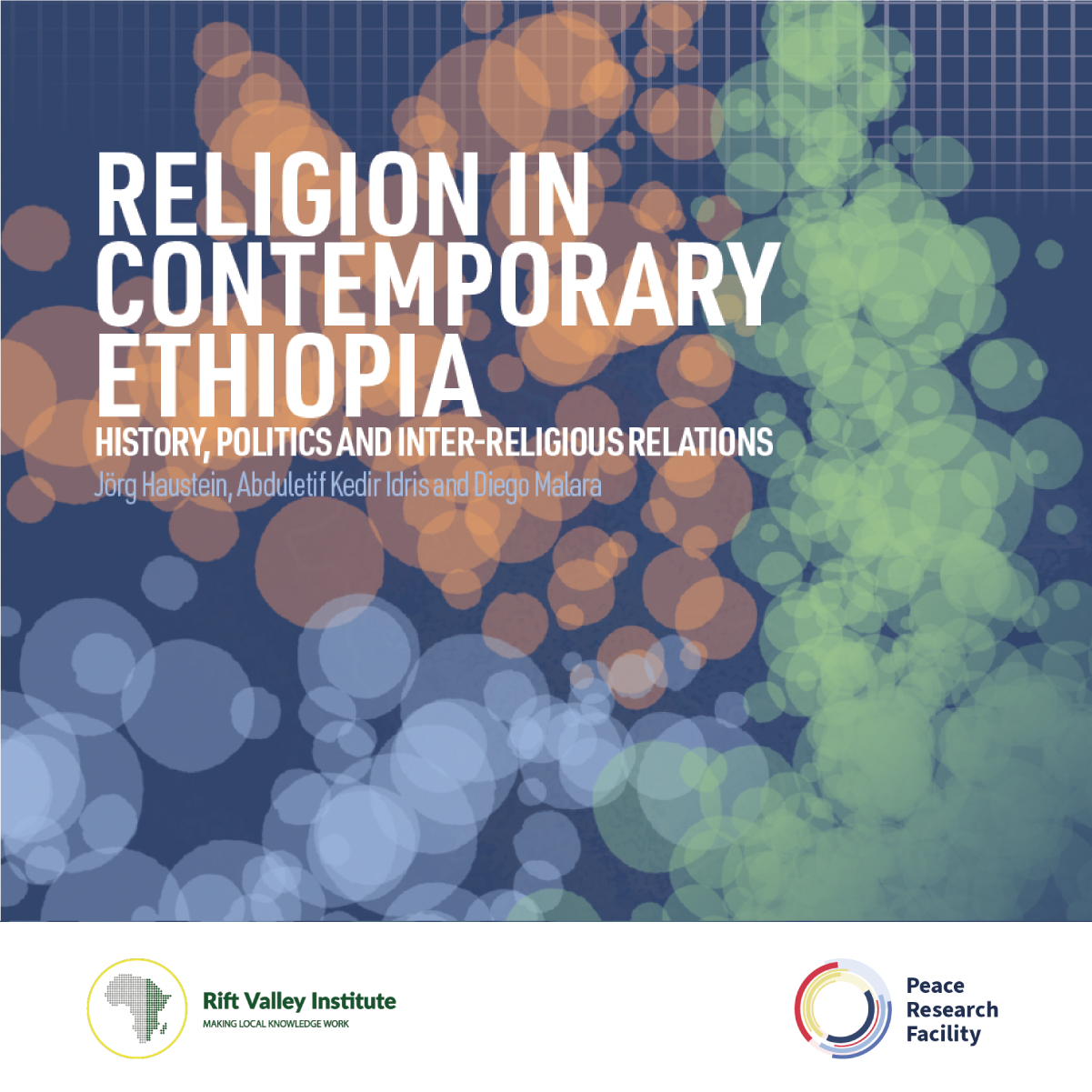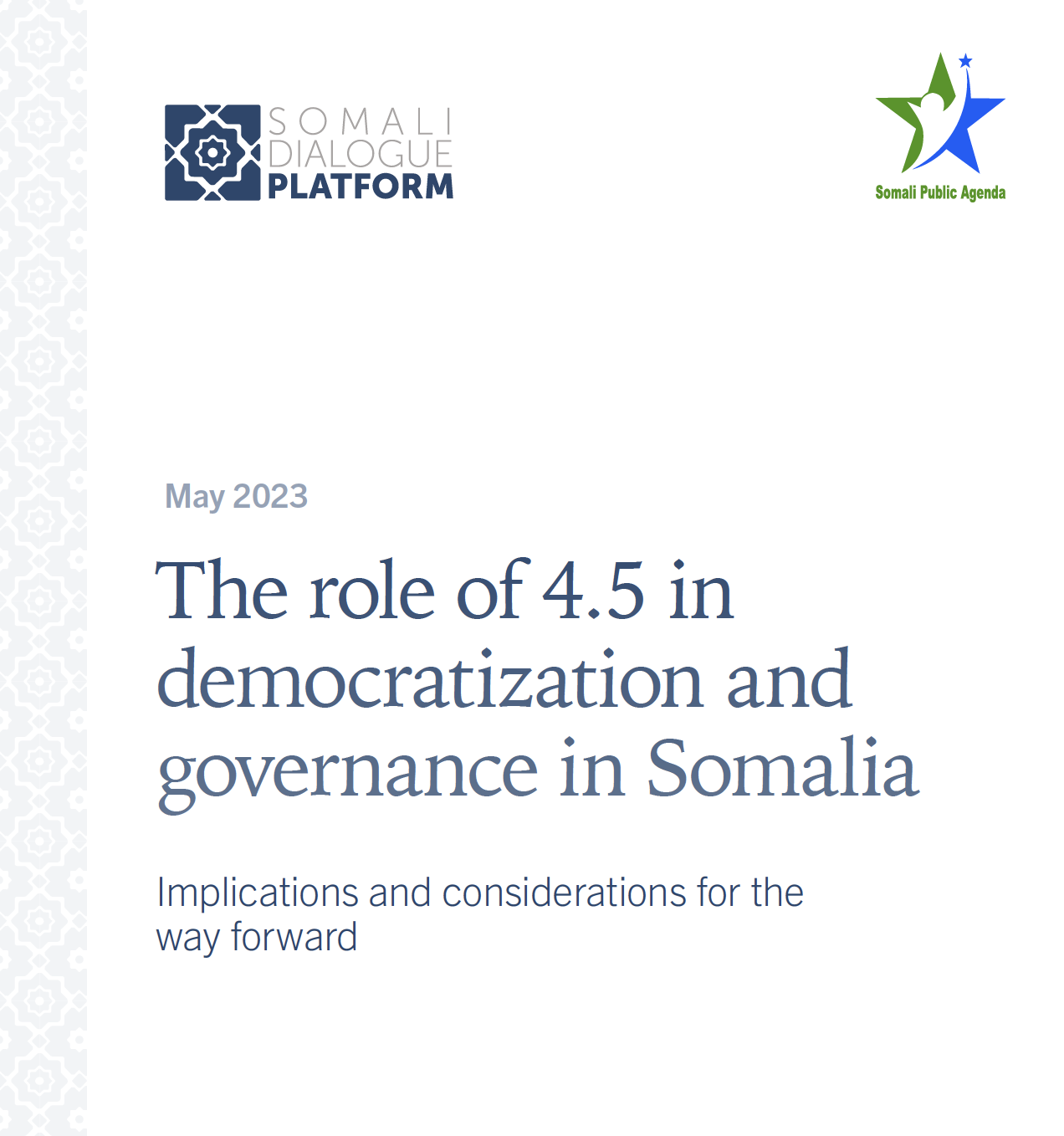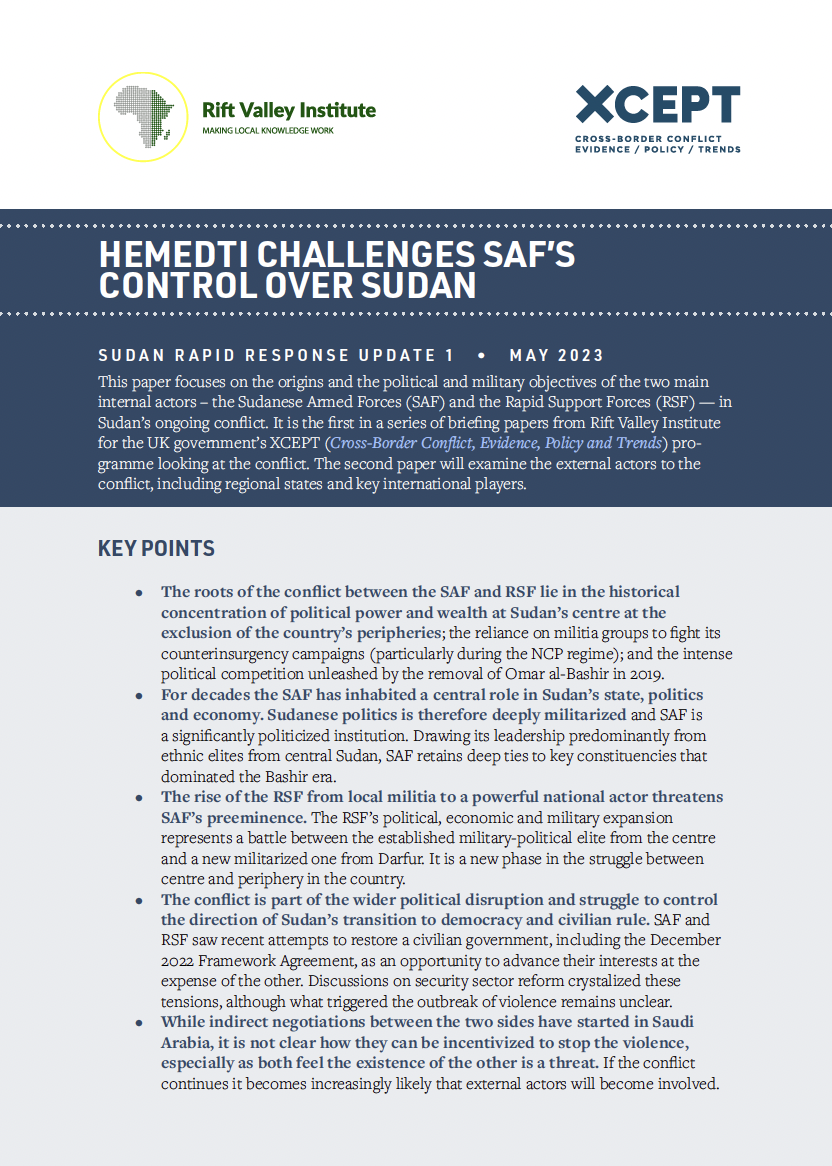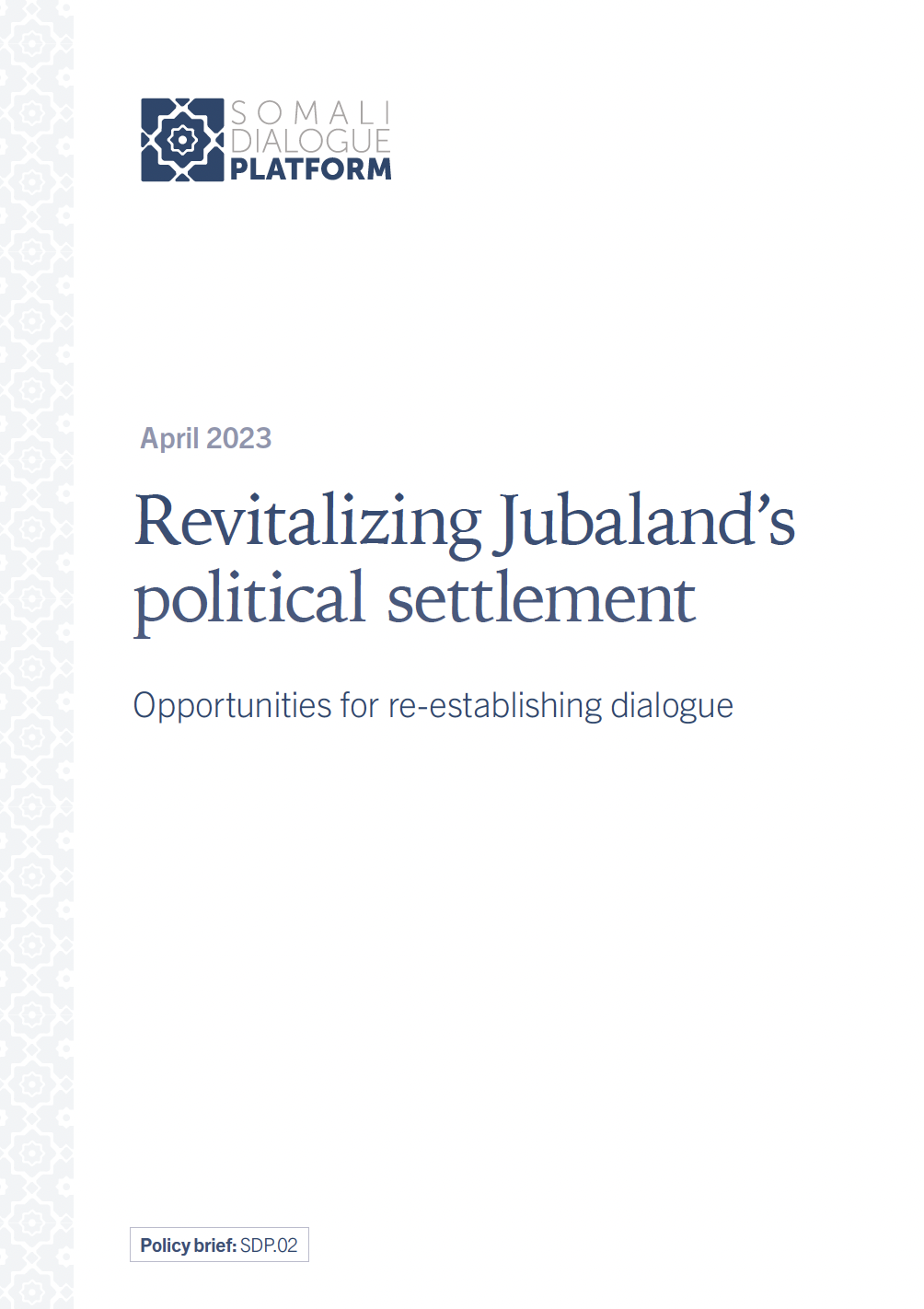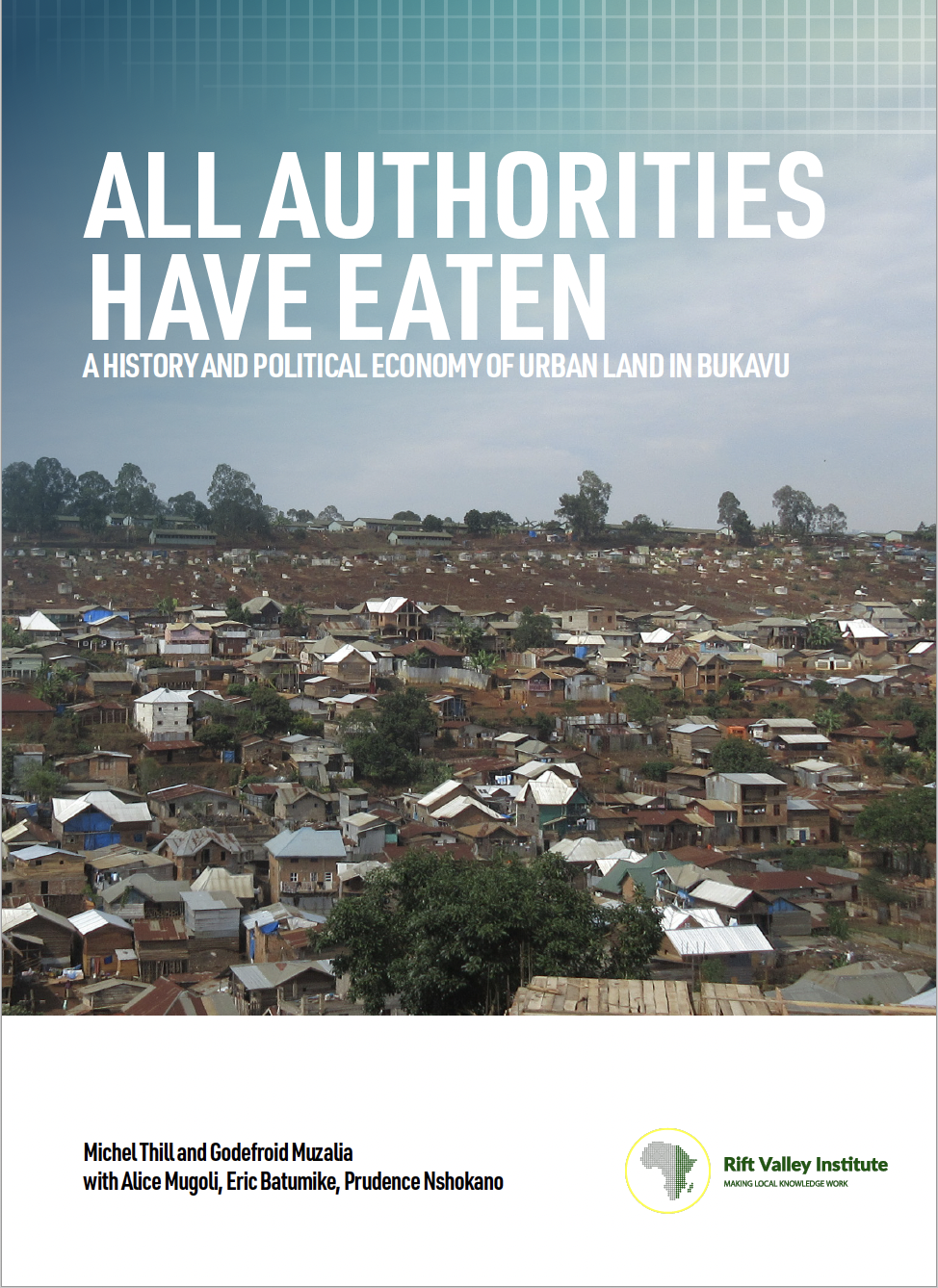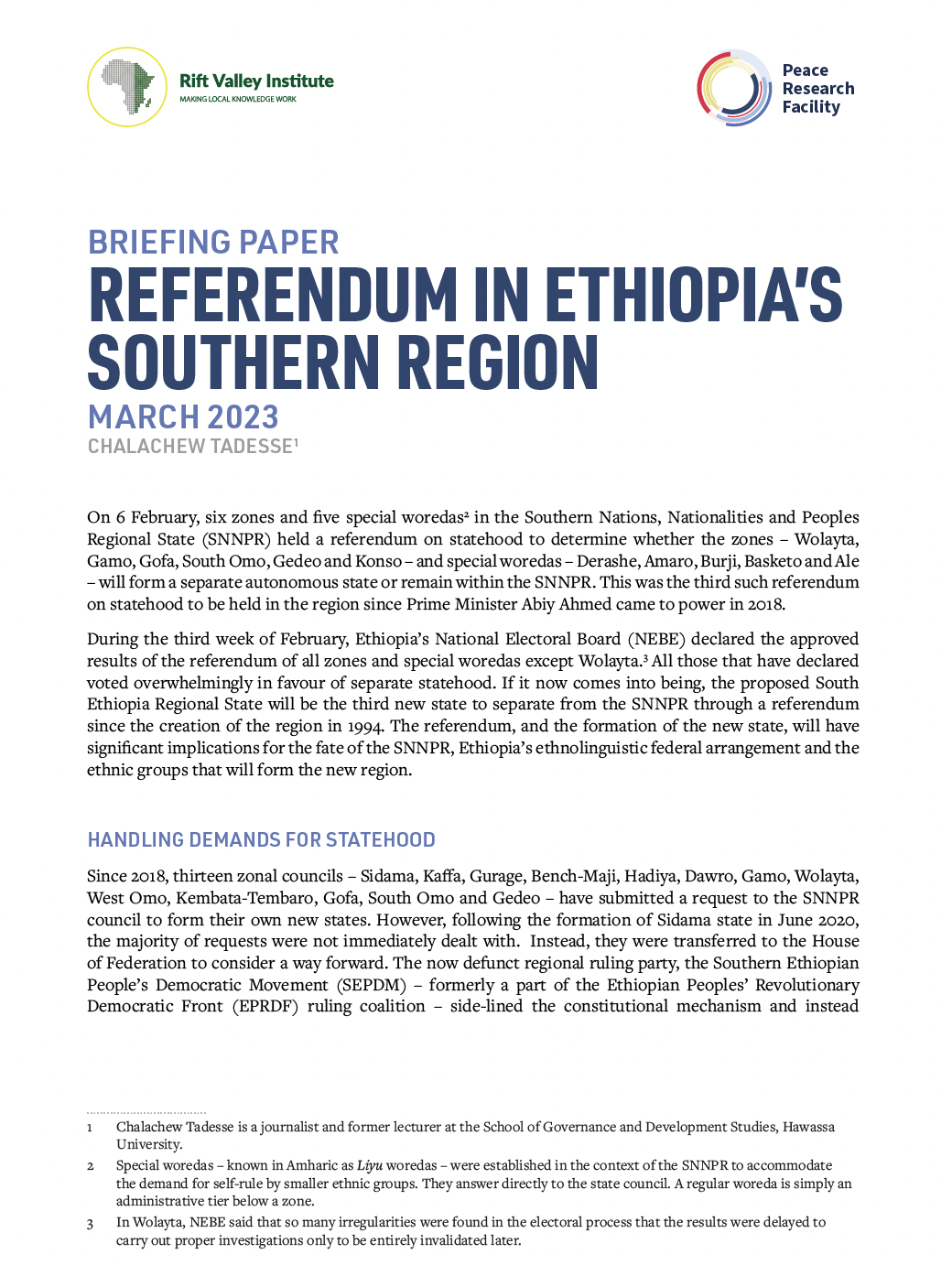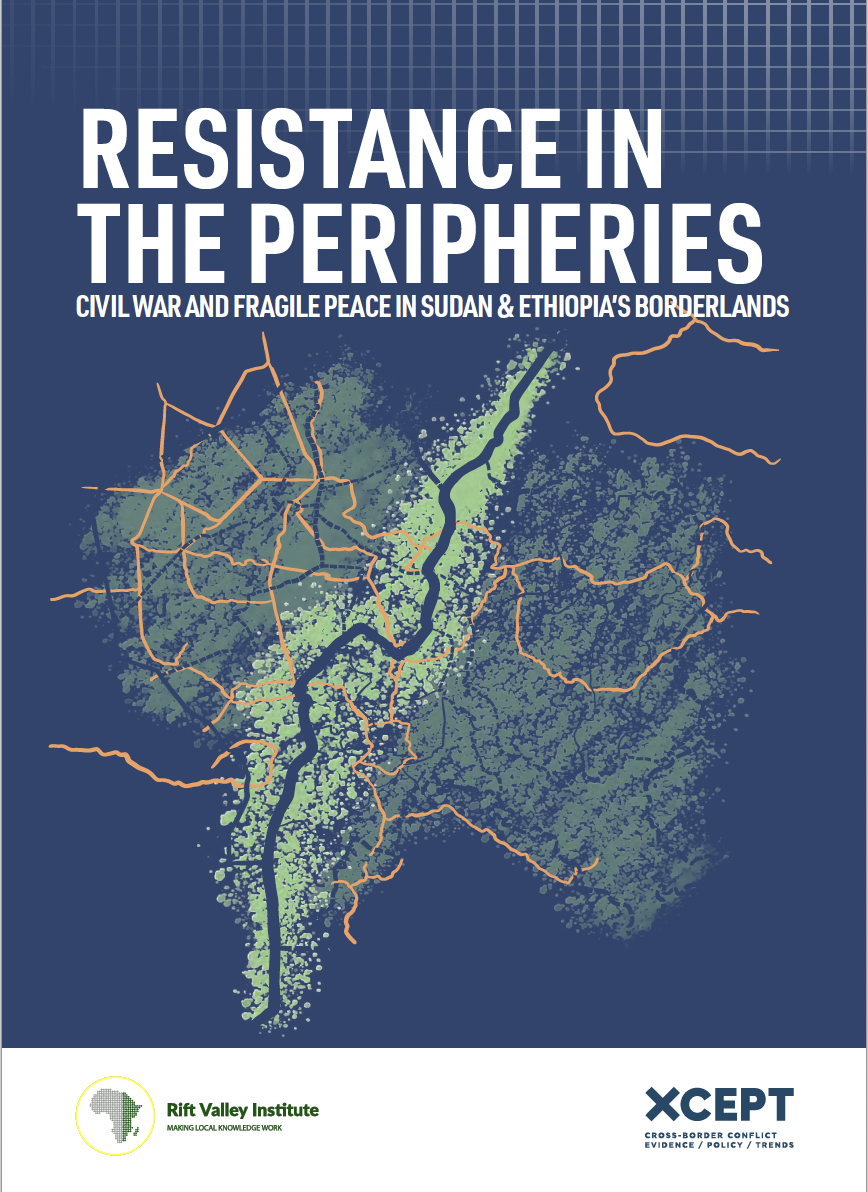This paper focuses on the potential for a regionalization of the conflict between the Sudan Armed Forces (SAF) and the Rapid Support Forces (RSF), including external involvement by Sudan’s neighbours and cross-border spill-over. It is the second in a…
RVI publishes books, research reports, research papers, briefings and meeting reports in a range of formats. Publications cover policy, research, arts, culture and local knowledge in the countries of eastern and central Africa. Research publications—books, reports and papers—are peer-reviewed. Some RVI publications are also available in French and/or Arabic.
The RVI is a signatory of the Budapest Open Access Initiative (2001); all publications are free for download in PDF format under Creative Commons licences. The views expressed in books and reports published by the RVI are those of the authors, not the Institute.
SEARCH
PUBLICATION TYPE
LANGUAGE
REGION
COUNTRY
INTRODUCTION Social science knowledge production in Ethiopia, as elsewhere in Africa, has Eurocentric roots. This is because Ethiopian Studies was born outside of Ethiopia, with the first generation of scholars consisting mainly of academics from Western countries or Ethiopians…
HISTORY, POLITICS AND INTER-RELIGIOUS RELATIONS INTRODUCTION Religious affiliation is almost universal in Ethiopia, which means that religions amass significant political capital but may also act as potential catalysts for conflict. After five decades of ostensibly secular politics—first under a…
Overview Amid the major changes to Somalia’s political landscape seen over the past two decades, an abiding feature has been the reliance on clan-based power-sharing models, including the ‘4.5’ formula. Despite the Somali Provisional Constitution containing no reference to…
This paper focuses on the origins and the political and military objectives of the two main internal actors – the Sudanese Armed Forces (SAF) and the Rapid Support Forces (RSF) — in Sudan’s ongoing conflict. It is the first…
Overview Since the formation of Jubaland state in 2012, decades of conflict have given way to increased stability across parts of the region. Even so, insecurity, political violence and humanitarian crises have persisted amid recurrent tensions between Jubaland and…
SUMMARY In the Democratic Republic of Congo (DRC, Congo), the opaque land governance framework, known to be at the bottom of countless conflicts ranging from disagreements between neighbours to violent clashes between armed groups, has been undergoing reform for…
This briefing was produced by the Ethiopia Peace Research Facility (PRF). The PRF is an independent facility combining timely analysis on peace and conflict from Ethiopian experts with support for conflict sensitive programming in the country. It is managed by…
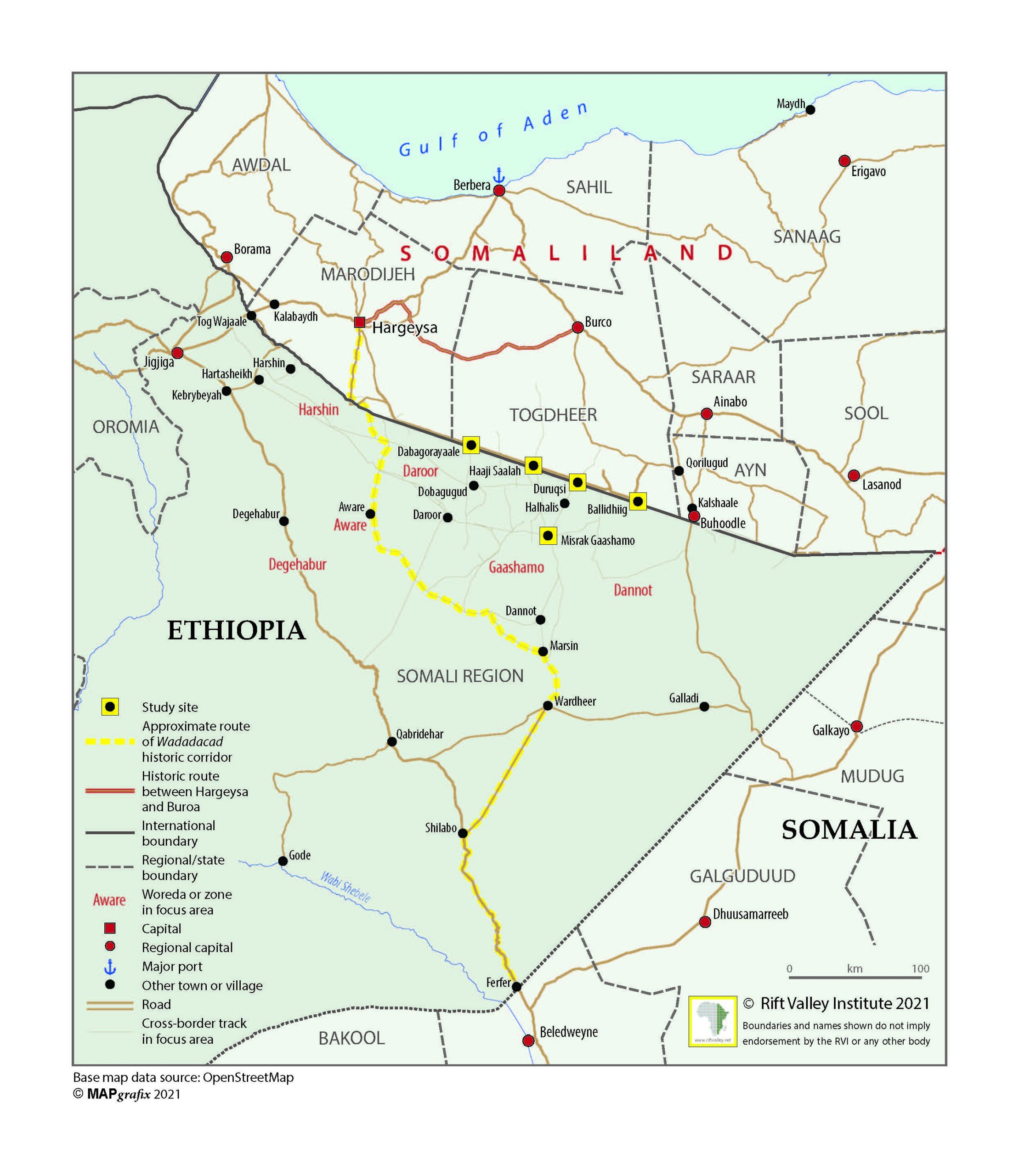
- By Mustafe M. Abdi
- Download
The current conflict over the contested city of Lasanod has the potential to expand into a crisis affecting several of the Somali-speaking territories. This blog – building on research the author conducted in 2021 – looks at the conflict…
Summary • Historically, the people living along the Blue Nile – Benishangul-Gumuz borderlands in what is now Sudan and Ethiopia have been politically and socially marginalized within their respective political entities. As such they have sought ways to address…
Recent Publications

Political Economy of Cash and Markets in Sudan
February 27, 2026
The research provides a snapshot of the war in Sudan in the period from February to April 2025. However, the war is dynamic, with political alliances and territorial control changing. The April 2023 conflict between the Sudan Armed Forces (SAF)

Rethinking Ethiopia II: Youth and politics
February 26, 2026
Seminar report Rethinking Ethiopia, a collaborative essay competition initiative between Addis Ababa University’s Institute for Peace and Security Studies (IPSS) and the Rift Valley Institute’s (RVI) Peace Research Facility (PRF), offers a platform for Ethiopian youth to express their ideas

2025 Year in Review
February 16, 2026
The 2025 Year in Review provides an overview of the Rift Valley Institute’s work over the past year across eastern and central Africa. The report highlights RVI’s research and publication outputs, education and training activities, and public forums and convenings,

